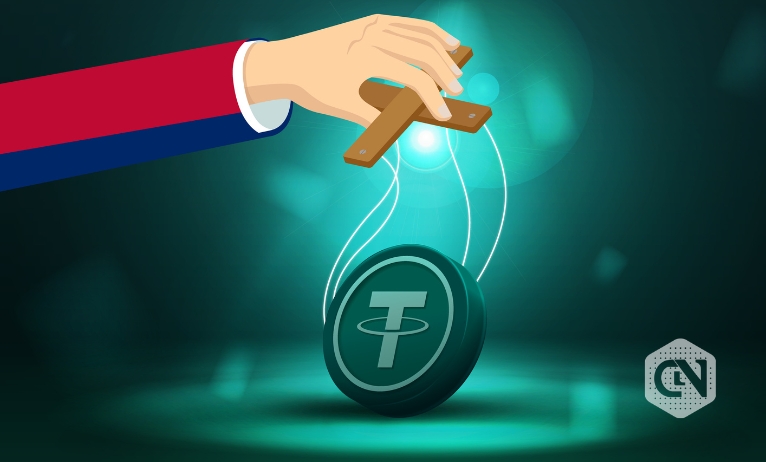JPMorgan, a major participant in financial solutions, published a statement encouraging US authorities to preserve its indirect control on the stablecoin Tether, despite the fact that its base is located overseas. Analysts at JPMorgan believe that the stablecoin’s reliance on the U.S. market puts it in a vulnerable position.
The Treasury sanctions, they continued, necessitated the addition of Tether to the blacklisted wallets. The clarity surrounding the stablecoin is inadequate, and U.S. crypto regulations threaten its dominance.
JPMorgan issued a special comment stating that in 2022, the Office of Foreign Assets Control (OFAC), the sanctions division of the Treasury Department, compelled Tether to block wallets with ties to mixer Tornado Cash.
The OFAC sanctioned Tornado Cash in 2022 on suspicion that it had commenced money laundering. Tether subsequently blacklisted the wallet after OFAC presented the privacy utility Tornado Cash as a sanctions violation.
Advertisement
According to Paolo Ardoino, the CEO of Tether, the situation was nothing more than retaliation. He continued by saying that JPMorgan, which was not at all adept at the new financial and payment systems, is now expressing its displeasure at the increased activity in that area.
However, JPMorgan analysts believe that forthcoming regulations concerning stablecoins in the United States and Europe will diminish the appeal of Tether in comparison to more feasible alternatives.
Furthermore, despite their inclination towards greater clarity, the current public disclosures made by Tether failed to impress the analysts.
S&P Global, a credit rating agency, has granted Tether positive feedback concerning its ability to sustain its 1:1 dollar parity.
Advertisement
Analysts at JPMorgan want the relevant US authorities to impose sanctions on stablecoins in an effort to influence their position while Tether continues to operate offshore.







